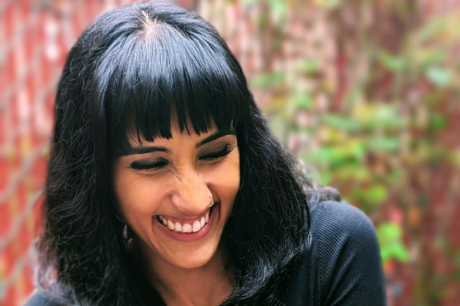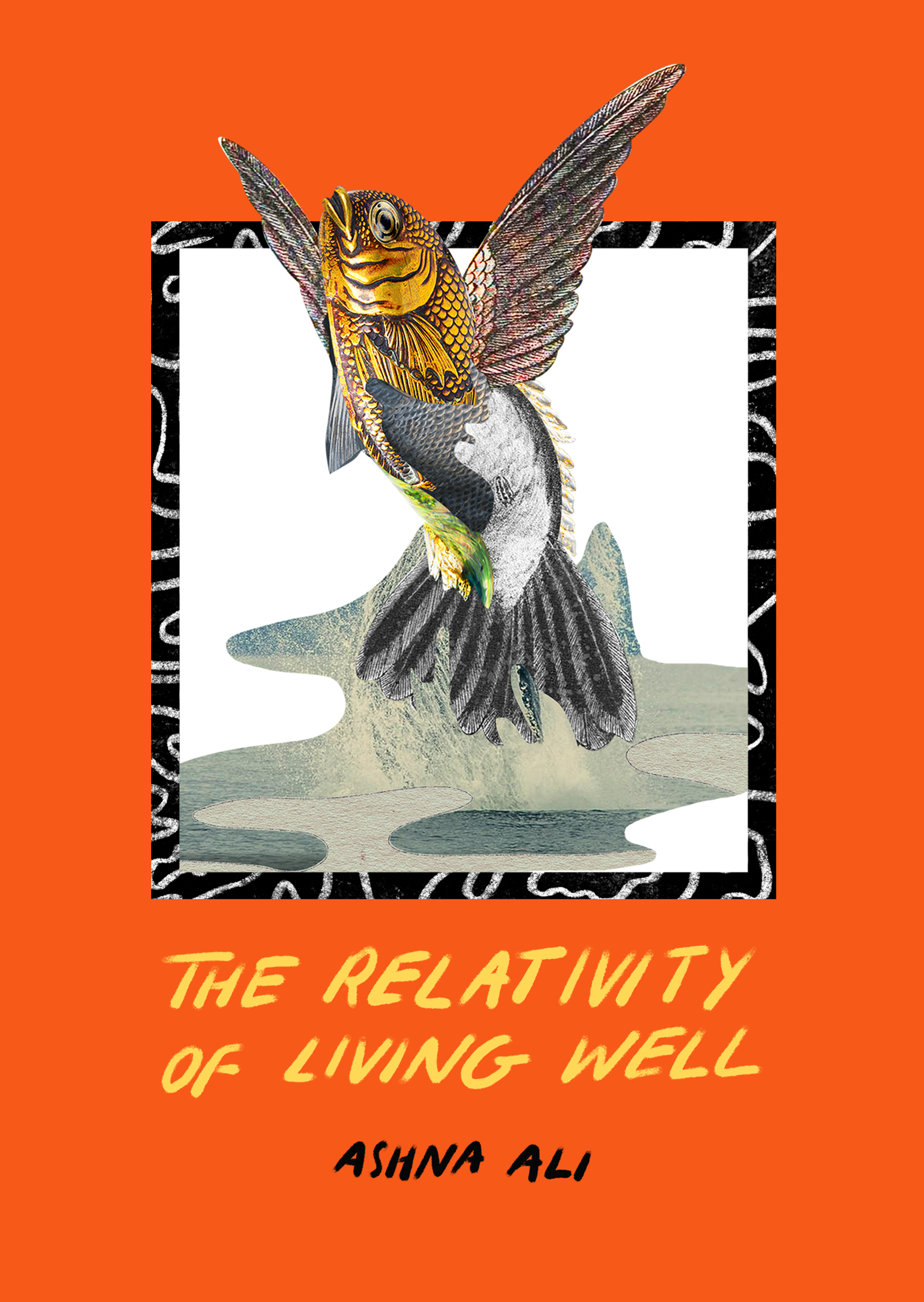In Their Own Words
Ashna Ali on “Now You See Me, Or, Denial”

Look, I was always a sickly child.
My bloodmetal mouth parts, asks
if sweat was always so cold.
Are sour calves, like chocolate,
just another winter flavor?
But no aroma or flavor rises,
only temperature.
But so many other things
can send me craving ice cream for cold,
make me hot
for coffee, a side
of clementine rind
for a bit of feeling.
Not new.
Look, If I mute myself,
my wheezing is muffled
even to me!
The neighbor waves,
watches me window cough.
I’m fine, I mime.
Bow my head
to where the screen
cannot see me.
From The Relativity of Living Well (2024) published by Bone Bouquet. Reprinted with the permission of the publisher and poet.
My debut collection, The Relativity of Living Well, traces a journey that began with my contracting long COVID-19 in March 2020. This was before we were told the virus was airborne, before masks, and before vaccines. If we were ill, city services told us to remain home, and offered no further medical support. Many Brooklyn residents passed away in their homes. “Now You See Me, Or, Denial” belongs to the suite of poems that opens the book and is titled after the stages of bereavement. The titles arrived two years later, after I realized that I was writing both in and for the present, and toward a future in which everything had inevitably changed.
The speaker in “Now You See Me, Or, Denial” attempts to convince themself that they do not have COVID-19. They take inventory of their symptoms in hopes of deeming them ordinary. Many chronically ill people spend our days toggling between gaslighting ourselves about our symptoms and avoiding the possible realities we’re afraid of, a drama that unfolds explicitly across these lines: “My bloodmetal mouth parts to ask if sweat / was always so cold. / Are sour calves, like chocolate, / just another winter thing?” That the speaker decides their desperation for temperature and texture is “Not new” in the absence of perceiving “aroma or flavor” suggests that these are certainly not only new, but extremely alarming responses. This poem helps me remember how long I tasted nothing but blood, though there was no blood to taste. Enough of the original lines from early drafts remain so that I am– perhaps darkly–entertained by my own ignorance of their prescience when I wrote them.
The poem is set in front of a Zoom screen—the collection’s first of many, in the early days of online teaching. While the speaker can control the image students can see, the neighbor who observes the speaker through a window—a different kind of screen and barrier—is privy to their dramatic, full-body coughing. The camera's limited frame allows the speaker to center student experiences over their own: “Look, if I mute myself, my wheezing / is muffled even to me!” The line between what we want the world to perceive of us and how we perceive as our reality blurred. The poems in The Relativity of Living Well live a life outside of their first iterations, but their original contexts of production feel important. The first handful were printed on a laser printer at home and sewn into paper chapbooks for sale as a fundraiser item for the mutual aid organization Bed-Stuy Strong. I was too ill and overworked to make food deliveries or phone bank, so I chose to make something out of these poems that might benefit the community. Now, they stand as witness and a record of a time when we are being guided by government forces and media suppression, a time they now deem not only over but somehow unimportant.
We have yet to collectively honor and memorialize the many lives we lost to COVID-19 in the United States. My hope for the collection is that it marks to fellow chronically ill and disabled people that they are not alone and that they are seen, heard, and cared about. As for those who are not (yet) disabled, I hope it serves as a call to rage and action. We all deserve a world in which it is safe to become ill, to age, and not live in slavish dedication to labor under capitalism. Poetry can help us imagine and refine our ideas of how to live interdependently, committed to one another’s care, and to justice. I am grateful to this book for teaching me that and refining my practices to align with disability justice as decolonial praxis and the inspiration for a more humane, interpersonal grace than I ever thought available to me before poetry.



